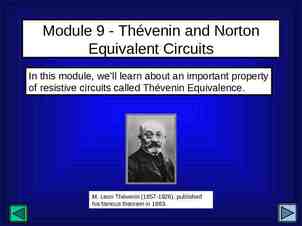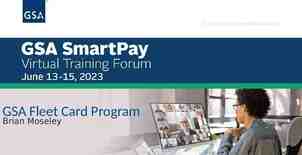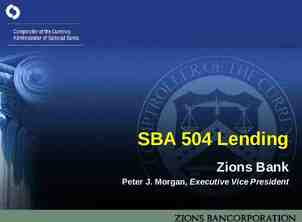ROLE OF THE SCHOOL COUNSELOR Office of Prevention & Intervention
20 Slides1.18 MB

ROLE OF THE SCHOOL COUNSELOR Office of Prevention & Intervention

Introductions & Do-Now Why did you become a counselor? What’s one goal you have this year? What do you remember about your school counselor?

Community Builder Stand Next to your desk One at a time, each participant will state something they enjoy doing (self-care activities) If you agree, take a step forward

Objectives To highlight the roles of a School Counselor in the School District of Philadelphia Norms Start on time/end on time Ensure equity of voice Value and consider different perspectives Use of technology for session related purposes

School counselors provide consultation to teachers and administrators to accomplish Academic, College & Career and Social/Emotional goals. The collaborative work of our teachers, parents, agency representatives, and all members of the schools community, led by the school counselor, is needed to support our students in reaching these goals. (SDP - District Counseling Plan)

What services do school counselors provide? Academic Program Goals College & Career Program Goals Social/Emotional Program Goals

Academic Program Goals To help students understand their individual learning styles and encourage them to develop skills that will enable them to reach their academic potential and become lifelong learners. To help students assess and self-monitor their academic performance. To help students identify their barriers to learning and support them to address these barriers.

College and Career Program Goals To help students choose and advance in a program that will enable them to reach their future academic and career goals. To provide students with the opportunity to assess personal interests and aptitudes in relation to career interest. To help students discover career pathways through various college and career resources and exposure to a broad spectrum of careers.

Social/Emotional Program Goals To assist students to build empathy and develop positive interpersonal relationship skills involving respect for diversity and cultural competence. To assist students in developing resiliency and effective coping skills. To assist students to develop appropriate problem-solving and decision making skills to resolve conflicts.

ASCA National Model

What Does Data Say? School counselors who are implementing comprehensive, data driven school counseling programs are able to show the direct impact on the school community and how their targeted interventions are making a difference.

Leader of the Pack The School Counselor is the leader of the SAP (Student Assistance Program) within the school setting. The school SAP Team (focus on MTSS & the tier process) comprises of key leadership members that determines needs of students in the school and makes recommendations for interventions The School Counselor is seen the gate keeper of behavioral interventions for the student body

Intervention Teams School Counselor S.E.L School Based Teacher Leader Climate Manager Dean of Students School Nurse Assistant Principal*

Services and Interventions Individual Counseling Small Group Counseling Consultation on Student Behavioral Support Planning Crisis Intervention & Behavioral Health Emergencies SAP Referrals (Agency Referrals) Consultation to Leadership Team Peer Facilitation

System Support The School Counselor assists with the management of activities that establish, maintain, and enhance the comprehensive school counseling program. Components include: Professional Development Consultation Community Outreach

Benefits of a Comprehensive School Counseling Program Increased Student Achievement Reduced Discipline Referrals Higher Graduation Rates Lower Retention Rates Improved Attendance

Points of Reference School District of Philadelphia Counselor Rubric is a guideline for roles of the school counselor and a continual point of reference when developing your school counseling plan

Counselor Planning Time Pair up into groups of two Visualize & create your plan for your first week as a new counselor in your building Key points to consider: o o o o Assessing your schools needs Introductions & classroom visits Plans to involve yourself in back to school night Creation of/ideas for brochure or PowerPoint for Back to School Night (ASCA Model) on the role of the school counselor in your building

OFFICE OF STUDENT SUPPORT SERVICES OFFICE OF PREVENTION & INTERVENTION Prevention & Intervention Liaisons James Adams : 215 – 400 - 5851 [email protected] Deputy Chief, Lori Paster [email protected] 215-400-6791 Johanna Agnew [email protected] : 215 – 400 - 5134 John Hale [email protected] : 215 – 400 - 6447 Director: Trauma-Informed School Practices, Iesha Brown-Pygatt Tania Leonard [email protected] [email protected] 215-400-6425 Student Support Specialist, Latesha Watson [email protected] 215-400-5661 : 215 – 400 - 5712 Korbin Reynolds : 215 – 400 - 5889 [email protected] Tara Ryans [email protected] : 215 – 400 - 5509 Damian Vargas [email protected] : 215 – 400 - 5621







